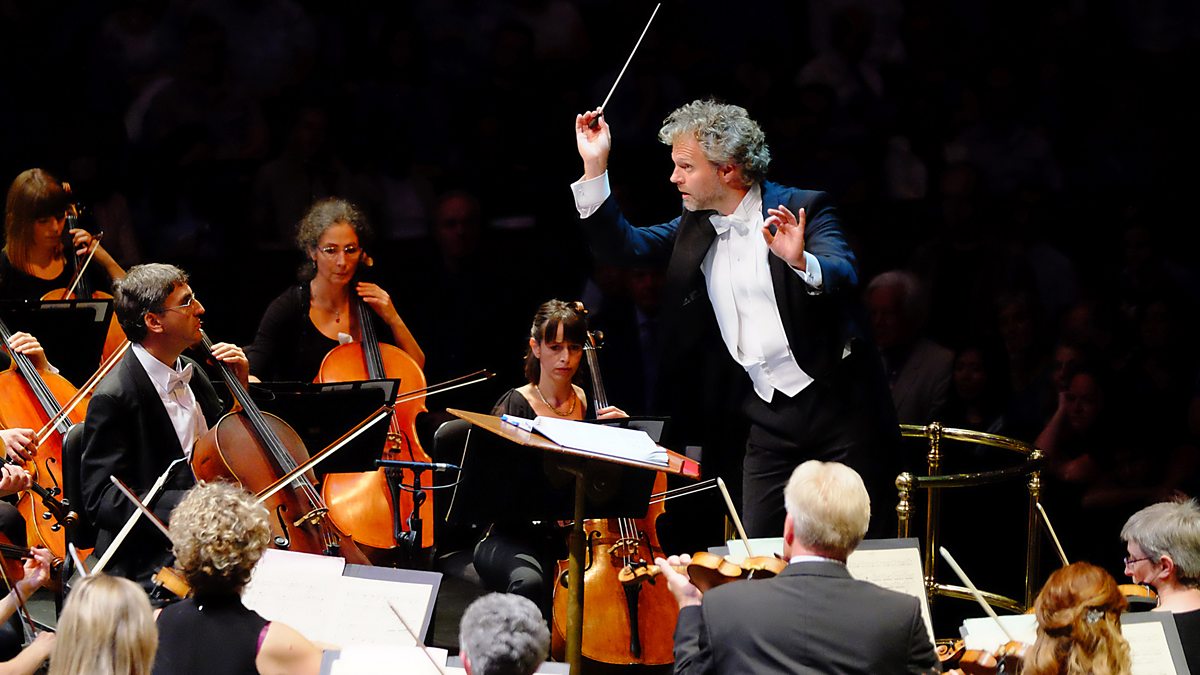19:00 Thursday 11 Aug 2016
Royal Albert Hall
Béla Bartók: Dance Suite
Malcolm Hayes: Violin Concerto
Antonin Dvorak: Symphony No 7 in D minor
Tai Murray (violin)
BBC National Orchestra of Wales
Thomas Sondergard (conductor)
When the London Philharmonic Society asked Dvorak for a new symphony in 1884, the composer knew he had to deliver something special. In the resulting Seventh, the doubts and frustrations Dvorak experienced as a composer are defeated by music that triumphs compellingly over its own nervous energy, bursting into radiant brightness in the final bars. Tonight, Dvorak's most fascinating symphony is heard after Malcolm Hayes's new concerto, a work inspired by the mood and atmosphere of the Outer Hebrides and played by former Radio 3 New Generation Artist Tai Murray. The solo line soars in the outer sections as a life-form in flight in this concerto with an open-air spirit. Bartok's colourful Dance Suite, featuring Hungarian and Arabic folk melodies, opens the concert.
Royal Albert Hall
Béla Bartók: Dance Suite
Malcolm Hayes: Violin Concerto
Antonin Dvorak: Symphony No 7 in D minor
Tai Murray (violin)
BBC National Orchestra of Wales
Thomas Sondergard (conductor)
When the London Philharmonic Society asked Dvorak for a new symphony in 1884, the composer knew he had to deliver something special. In the resulting Seventh, the doubts and frustrations Dvorak experienced as a composer are defeated by music that triumphs compellingly over its own nervous energy, bursting into radiant brightness in the final bars. Tonight, Dvorak's most fascinating symphony is heard after Malcolm Hayes's new concerto, a work inspired by the mood and atmosphere of the Outer Hebrides and played by former Radio 3 New Generation Artist Tai Murray. The solo line soars in the outer sections as a life-form in flight in this concerto with an open-air spirit. Bartok's colourful Dance Suite, featuring Hungarian and Arabic folk melodies, opens the concert.


Comment